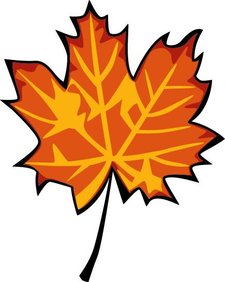Autumnal equinox
|
|
In astronomy, the autumnal equinox (fall equinox, September equinox, or southward equinox) signals the beginning of autumn in the northern hemisphere: the moment when the sun appears to cross the celestial equator, heading southward; the equinox occurs around September 22–September 24, varying slightly each year according to the 400-year cycle of leap years in the Gregorian Calendar.
In the southern hemisphere, the equinox occurs at the same moment, but at the beginning of spring. There are two conventions for dealing with this: either the name of the equinox can be changed to the vernal equinox, or (apparently more commonly) the name is unchanged and it is accepted that it is out of synch with the season.
At the equinox, the sun rises directly in the east and sets directly in the west. In the northern hemisphere, before the autumnal equinox, the sun rises and sets more and more to the north, and afterwards, it rises and sets more and more to the south.
This is when the Neopagan Sabbat of Mabon is celebrated. Also, Autumnal Equinox Day (秋分の日) is an official national holiday in Japan, and is spent visiting family graves, and holding family reunions.

